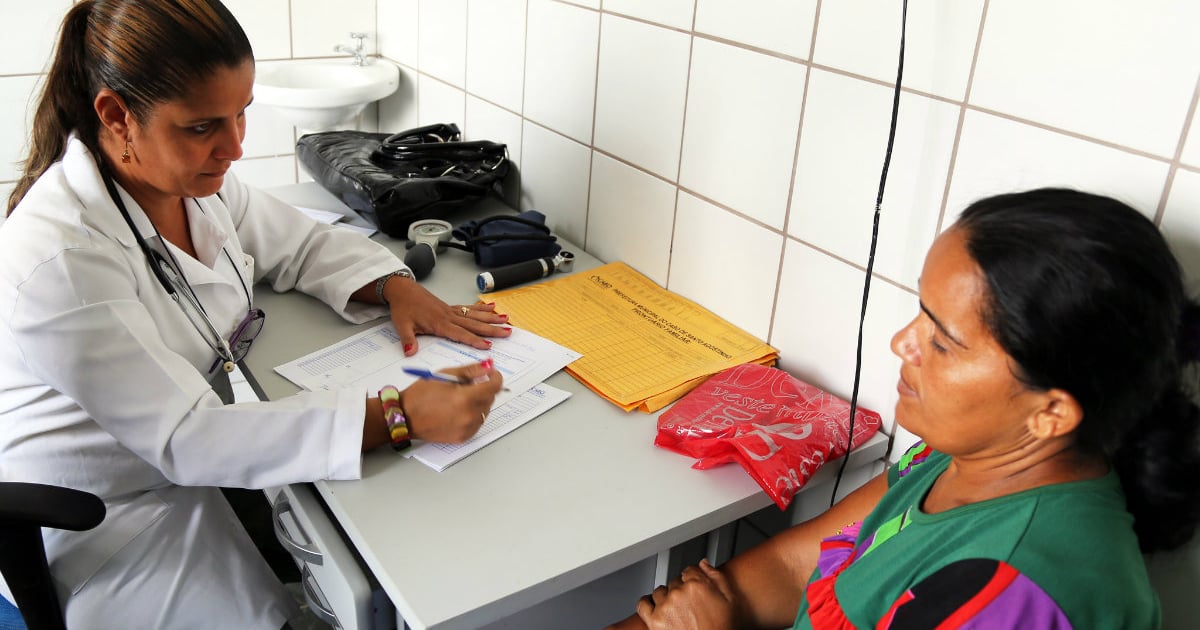The U.S. Department of State issued a stern warning on Thursday to countries maintaining agreements with the Cuban government to receive healthcare personnel from the so-called medical missions. The department urged these nations to seek fair alternatives that do not infringe on the rights of the medical professionals involved. "There are ethical and legal ways to employ Cuban medical professionals abroad that benefit the doctors, not the regime. We welcome the chance to engage in dialogue with governments, institutions, and workers seeking fair alternatives. Let's put an end to human trafficking," the Official Account of the Bureau of Western Hemisphere Affairs at the Department of State posted on the social media platform X.
In a separate statement from the same account, the U.S. government emphasized that "governments hosting Cuban medical missions must ensure fair labor practices." It further highlighted the importance of transparency, stating, "Agreements should be public, and Cuban medical workers must have the same rights as local medical professionals, not be treated as commodities by the Cuban regime."
Back in March, U.S. Secretary of State Marco Rubio criticized the international medical missions organized by the Cuban regime, describing them as a "heinous practice" due to their exploitative labor conditions. However, he acknowledged that he would assess each situation individually in the Caribbean, where several countries rely on these services, and admitted there are places where Cuban specialists have "better labor standards."
During a press conference in Jamaica, Rubio condemned the fact that many Cuban doctors do not receive their salaries directly and are often stripped of their passports to prevent them from escaping. "In many other parts of the world, doctors aren't paid directly. The Cuban government receives the payment. They confiscate passports. Essentially, they operate as forced labor in numerous locations," stated the U.S. official.
The Cuban regime retaliated against Marco Rubio following the recent expansion of U.S. visa restrictions, which target Cuban officials and others involved in the island's labor export program, particularly the international medical missions. Cuban Foreign Minister Bruno Rodríguez accused the new Secretary of State of prioritizing his "personal agenda" over U.S. interests, arguing that the visa measure linked to international medical cooperation agreements represents the seventh act of aggression against the Cuban people in just one month.
Nevertheless, Ralph Gonsalves, the Prime Minister of Saint Vincent and the Grenadines, recently defended the Cuban medical missions with a cynical rhetoric, justifying that the island's healthcare professionals must surrender part of their salaries to the regime because they received "free education." This statement, made in response to the U.S. decision to impose sanctions on officials from third-party governments hiring Cuban doctors under exploitative conditions, has sparked heated debate over the labor rights of these professionals.
In this context, the Cuban regime highlighted in March the support of Caribbean leaders for its medical cooperation program, amidst international scrutiny and U.S.-imposed sanctions. The Cuban Foreign Ministry noted that several regional prime ministers expressed their willingness to forgo access to U.S. territory rather than dispense with Cuban medical assistance, which they consider essential to their healthcare systems.
Key Issues Surrounding Cuban Medical Missions
What are Cuban medical missions?
Cuban medical missions are international programs where Cuban healthcare professionals are sent abroad to provide medical services, often under agreements with foreign governments.
Why has the U.S. criticized these missions?
The U.S. criticizes these missions for their exploitative labor practices, where Cuban doctors may not receive direct payment and often have their passports confiscated, effectively treating them as forced labor.
How has the Cuban government responded to U.S. sanctions?
The Cuban government has accused the U.S. of aggression and prioritizing personal agendas over national interests, defending the medical missions as vital to many countries' healthcare systems.
